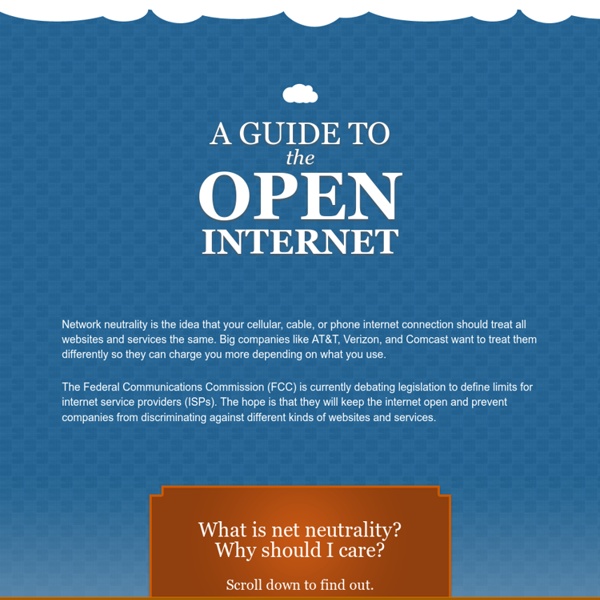



Cryptographers chosen to duke it out in final fight - physics-math - 13 December 2010 A competition to find a replacement for one of the gold-standard computer security algorithms used in almost all secure, online transactions just heated up. The list of possibilities for Secure Hash Algorithm-3, or SHA-3, has been narrowed down to five finalists. They now face the onslaught of an international community of "cryptanalysts" – who will analyse the algorithms for weaknesses – before just one is due to be selected as the winner in 2012. The competition, which is being run by the US National Institute of Standards and Technology in Gaithersburg, Maryland, is a huge deal for cryptographers and cryptanalysts alike. "These are incredibly competitive people.
How to Simplify Your Life Steps Method 1 of 4: Eliminating Clutter <img alt="Image titled Simplify Your Life Step 1.jpeg" src=" width="728" height="547" class="whcdn">1Decide what stuff is unnecessary. The 101 Most Useful Websites on the Internet Here are the most useful websites on the Internet that will make you smarter, increase productivity and help you learn new skills. These incredibly useful websites solve at least one problem really well. And they all have cool URLs that are easy to memorize thus saving you a trip to Google.
Visual Cryptography What is Visual Cryptography Visual Cryptography is a special encryption technique to hide information in images in such a way that it can be decrypted by the human vision if the correct key image is used. The technique was proposed by Naor and Shamir in 1994. Visual Cryptography uses two transparent images. One image contains random pixels and the other image contains the secret information. It is impossible to retrieve the secret information from one of the images.
Pause Google: 8 Alternative Search Engines To Find What Google Can't On the information superhighway, we are at the helm of piloting a browser through the lanes and alleys of the web. To be a good driver, you need to be a master at the wheel. Would it be an apt metaphor to describe Google Search as that wheel which steers us from one lode of information to the next? With the power of advanced search operators at our command, we can navigate the strands of the web with a bit of Boolean logic. We probably know all the Google search tricks, but there are still things that Google can’t tell us at first glance.
Religion no excuse for promoting scientific ignorance - science-in-society - 08 February 2011 The US constitution allows people to believe what they want. However, it does not require universities to promote ignorance LAST month, the University of Kentucky in Lexington paid $125,000 to settle a religious discrimination lawsuit brought by astrophysicist Martin Gaskell. Gaskell claimed the university did not appoint him director of their student observatory because of his Christian faith, despite him being the best candidate. The settlement - which is not an admission of wrongdoing - means the suit will not come to court. While I think the university had a case, this may be the best outcome. The 5 Models Of Content Curation Curation has always been an underrated form of creation. The Getty Center in Los Angeles is one of the most frequently visited museums in America – and started as a private art collection from one man (J. Paul Getty) who had a passion for art. Aside from a few well known examples like this one, however, the term curation has rarely been used outside of the world of art … until now. One of the hottest trends in social media right now is content curation – thanks in no small part to the leading efforts of several thought leaders actively promoting the idea.
How to make a Sawed-off USB Key Holy crap– somebody just went and TORE MY FREAKING USB CABLE IN HALF while it was still attached to my laptop!!! No– wait– sorry. That’s just my USB drive. My bad. Never mind. (And after the jump, how to make your own.) Lucid Dreaming By lucid dreaming, you can gain complete control over the one place that no one will ever care about: your imagination. Just The Facts Lucid dreaming is a scientifically proven phenomenon. Lawrence Lessig on the increasing regulation of cyberspace Every age has its potential regulator, its threat to liberty. Our founders feared a newly empowered federal government; the Constitution is written against that fear. John Stuart Mill worried about the regulation by social norms in nineteenth-century England; his book On Liberty is written against that regulation. Many of the progressives in the twentieth century worried about the injustices of the market. The reforms of the market, and the safety nets that surround it, were erected in response.
America as it could have been: 8 North American nations that didn’t make it to the 21st Century North America. We all recognise it on a map: it’s the continent above South America. Most of us can even name the countries, Canada, the United States, Mexico... other Spanish speaking ones... Why Content Curation is the new Blogging « (clicca qui per la traduzione in italiano) During these days I’m questioning myself about today’s online media industry recurring topic of discussion: the so-called content curation. The term itself can be identified with the concept of “caring about content.” This concept, obviously, can be investigated from a variety of viewpoints: it revolves around manipulating information, news, contents available online to a new form with sensibly higher ambitions in terms of vision, lifecycle and usefulness. It’s about producing contents that, on average, are well worth an enhanced amount of attention respect to the so-called “world buzz,” the avalanche of information micro-bits, we receive daily from the Internet through social media, blogs, online newspapers, and sometimes and unfortunately from content farms.